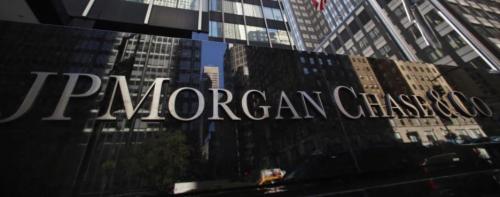Here’s a live transmission from the Texas courtroom where JP Morgan Chase & Co’s lawyers are asking a judge to throw out one of the largest punitive judgments in legal history.
Instead, the bank’s lawyers say the $8 billion judgment should be reduced to zero.
“The law and evidence do not support any claim against JPMorgan, much less the unprecedented multi-billion-dollar punitive damage award, which the heirs have already admitted is unconstitutionally excessive,” the bank said in a filing in Dallas probate court according to Bloomberg.
Back in September, the bank was ordered to pay at least $4 billion in punitive damages, approximately $4.7 million in actual damages, and $5 million in attorney fees after a six-person jury found that the bank committed fraud, breached its fiduciary duty and broke a fee agreement, according to court papers in its handling of the $20 million estate of former airline executive Max Hopper, who died suddenly in 2010 without a will.
And – confirming that much of America does not hold Wall Street in high regard – the jurors awarded a total $8 billion in punitive damages against the bank.
Hopper, who pioneered the SABRE reservation system for American Airlines, died in 2010 with assets of more than $19 million but without a will and testament, according to the statement. JPMorgan was hired as an administrator to divvy up the assets among family members. “Instead of independently and impartially collecting and dividing the estate’s assets, the bank took years to release basic interests in art, home furnishings, jewelry, and notably, Mr. Hopper’s collection of 6,700 golf putters and 900 bottles of wine,” the family’s lawyers said in the statement.“ Some of the interests in the assets were not released for more than five years.”

The bank’s incompetence caused more than just unacceptably long timelines; bank representatives failed to meet financial deadlines for the assets under their control. In at least one instance, stock options were allowed to expire. In others, Mrs. Hopper’s wishes to sell certain stock were ignored. The resulting losses, the jury found, resulted in actual damages and mental anguish suffered by Mrs. Hopper. With respect to Mr. Hopper’s adult children, the jury found that they lost potential inheritance in excess of $3 million when the Bank chose to pay its lawyers’ legal fees out of the estate account to defend claims against the Bank for violating its fiduciary duty.











Leave A Comment